Zeolite Y Faujasite Structure Model
SKU: 68784W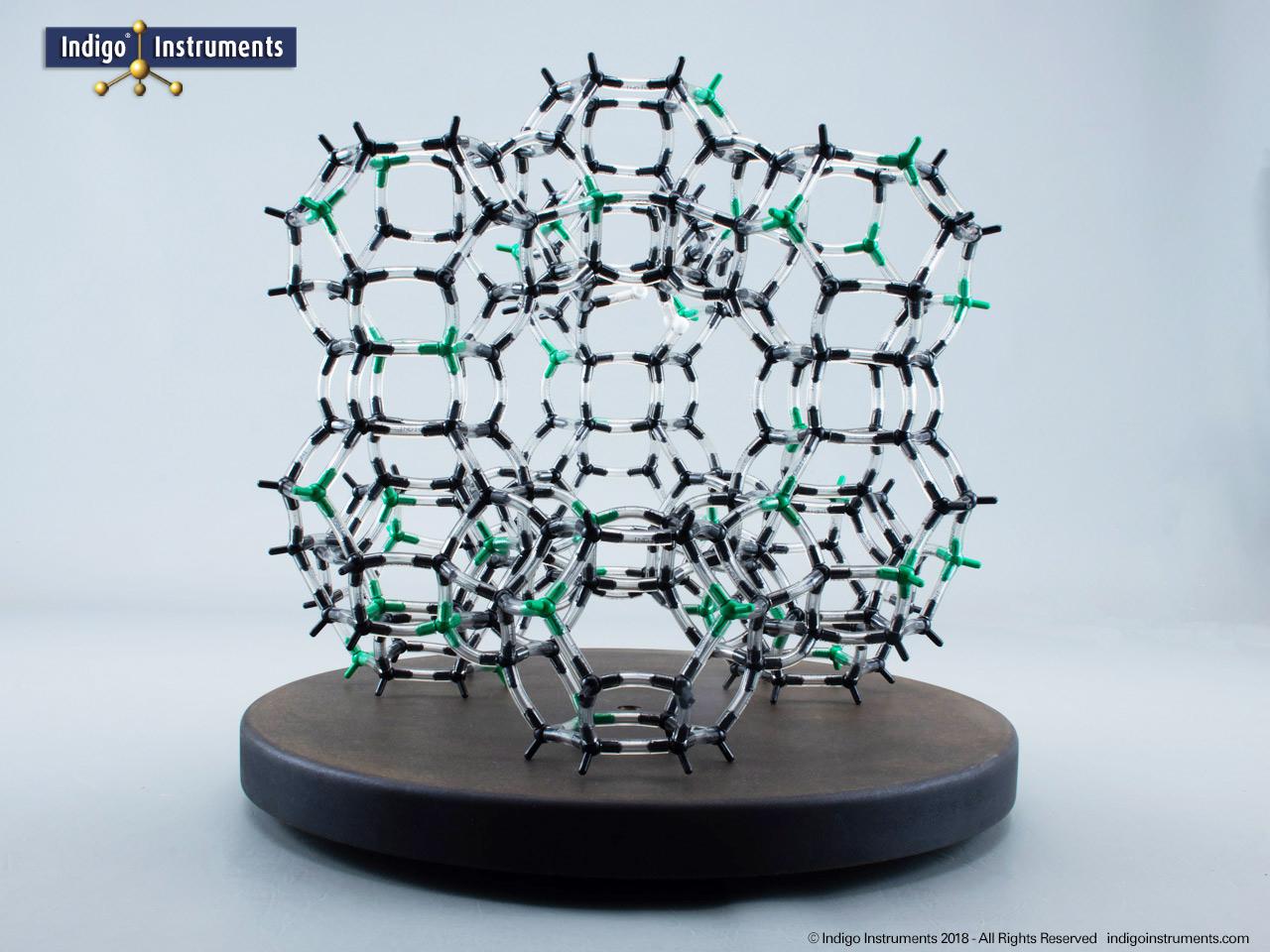
Zeolite Y, a synthetic form of the Faujasite (FAU) framework, features a 12-membered ring pore system that enables selective molecular sieving. Build and explore the Indigo ® Zeolite Y molecular model in studies on catalysis, molecular sieving, oil cracking & materials science.
The Zeolite Y Catalyst Structure Model (244 atoms, 434 bonds) illustrates the three-dimensional aluminosilicate faujasite cage structure, complete with pores (~7.4 Å) that support ion exchange, catalysis, molecular sieving, and hydrocarbon cracking. Its pores & channels and high surface area are arranged such that positively charged ions can enter & exchange with metal ions. It is ideal for teaching catalyst function in petroleum refining, separation of molecular-sized gases, or materials chemistry in advanced coursework. Because of its structural stability and hydrophobicity, Zeolite Y serves in applications from cracking heavy fractions of crude oil to desiccant or air purification systems.
Note: The base is not included and the oxygen atoms are implied. Also, there are no written instructions. You will need to build it using the stereo pair images below or the video to guide you. This is not recommended for beginners.
Indigo Instruments has maintained a substantial inventory of genuine Cochranes of Oxford (Orbit) parts for 30+ years (scroll down to see "Skeletal (Orbit/Minit) and are compatible with every molecular model kit we have sold since day 1. This level of quality may appear expensive but no parts support from other vendors costs even more.
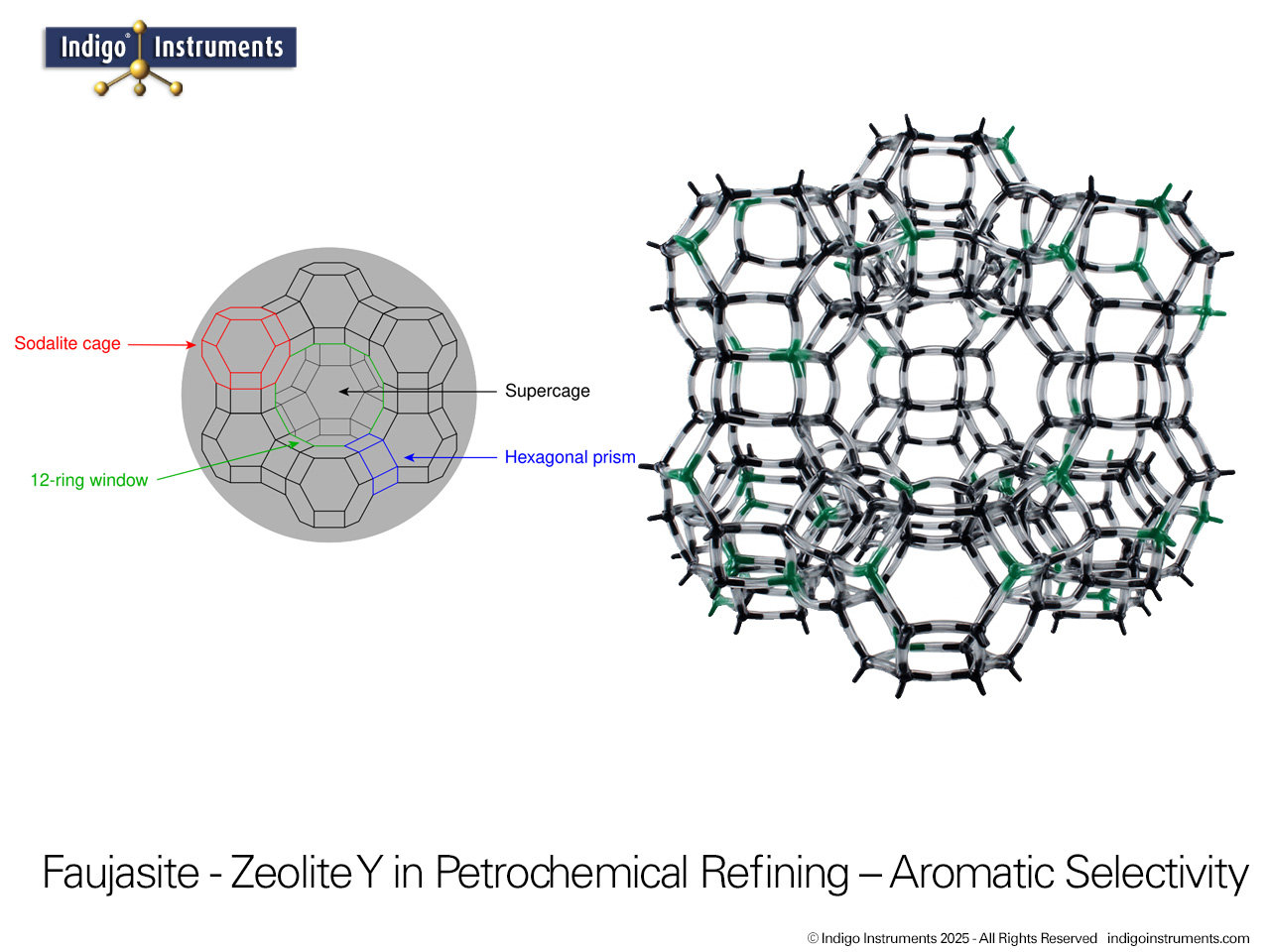
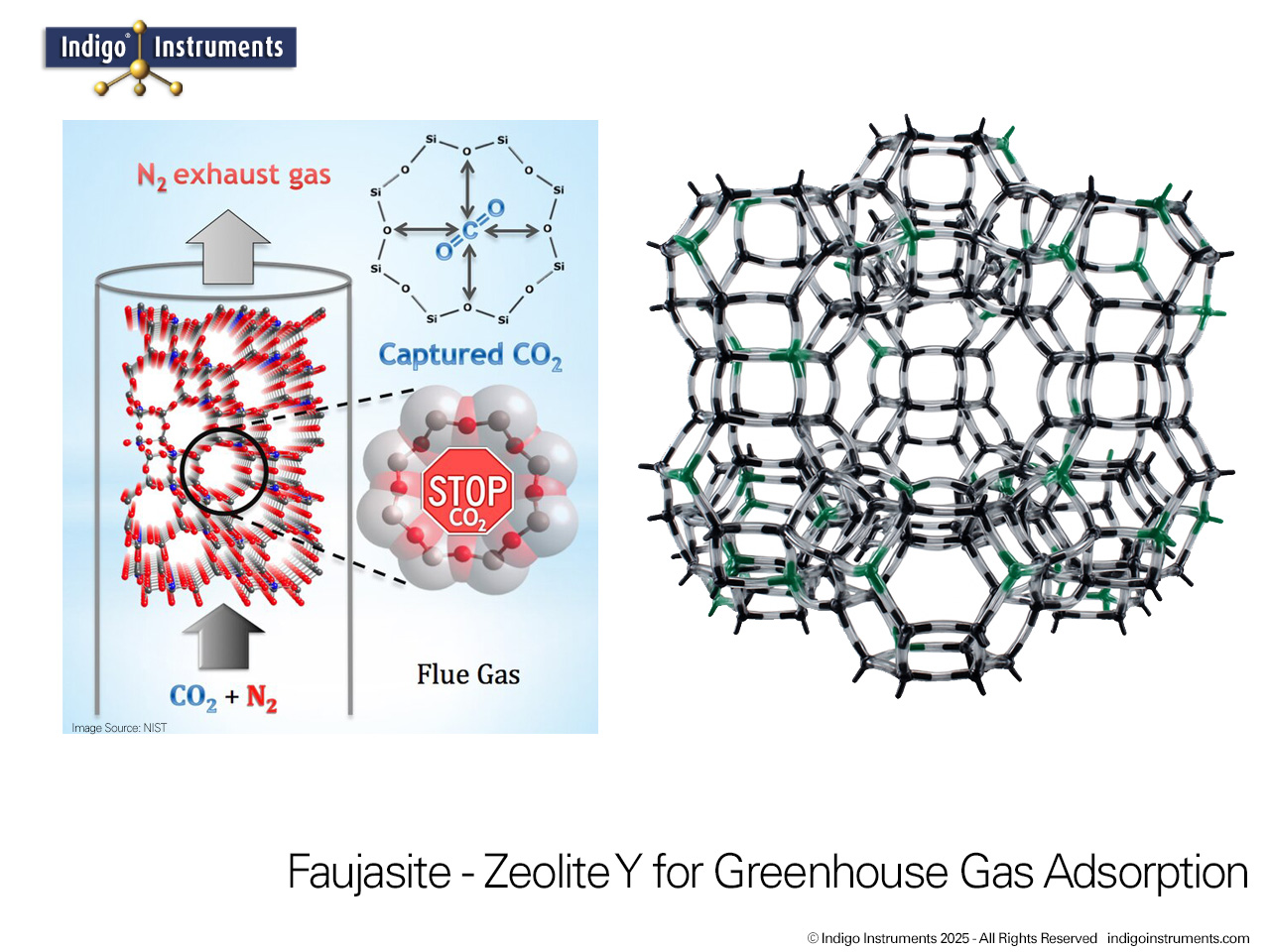
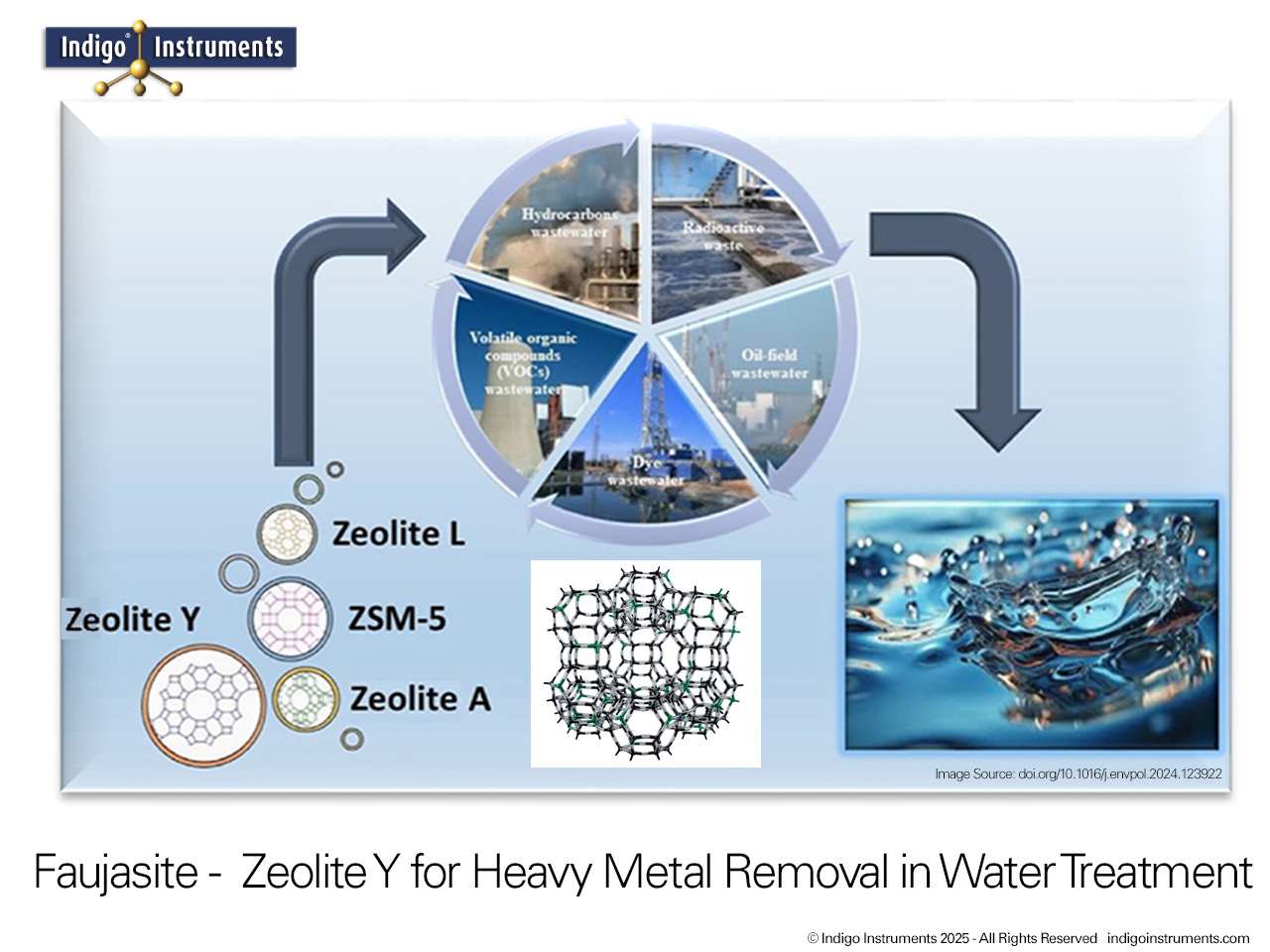
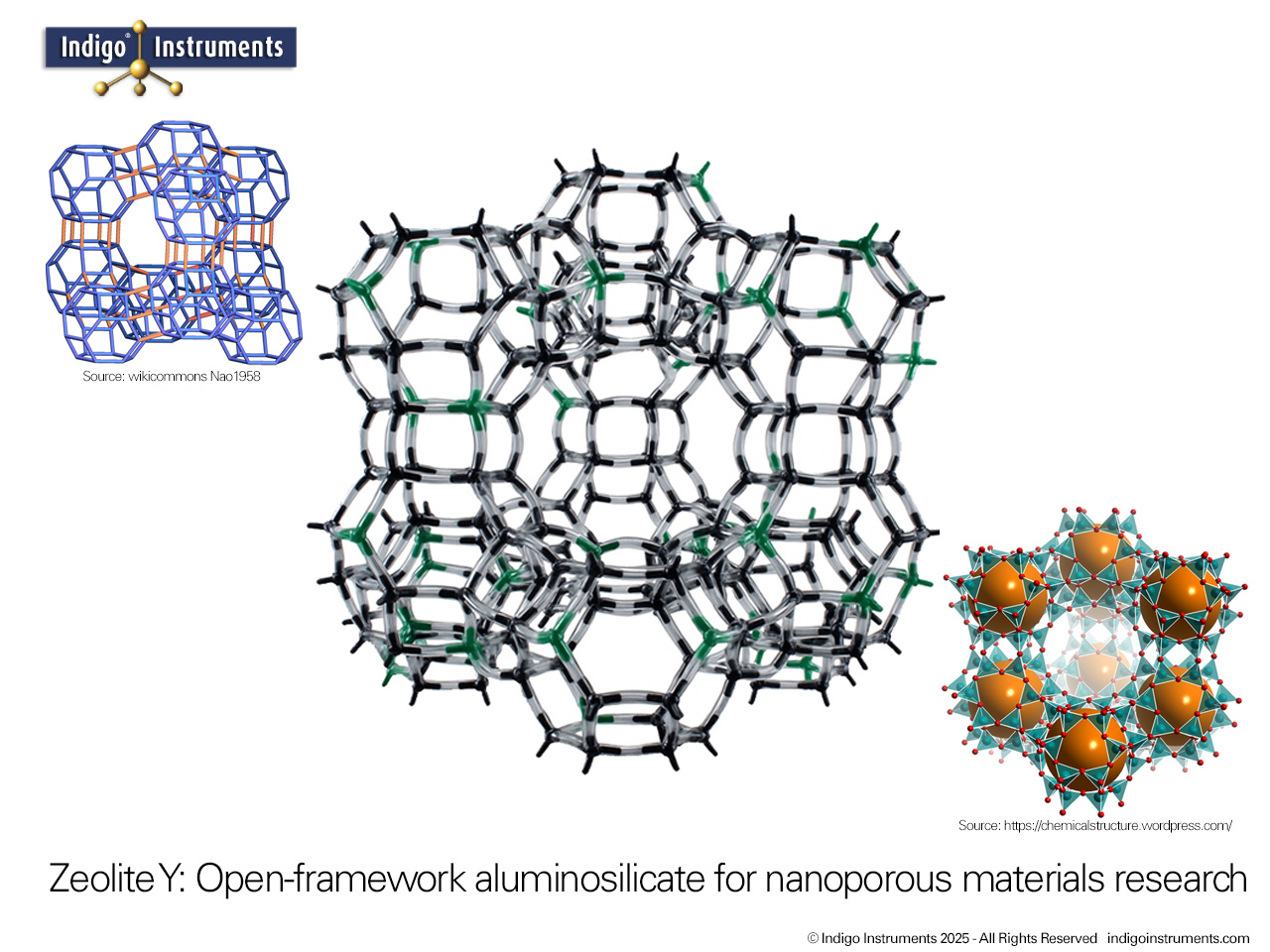
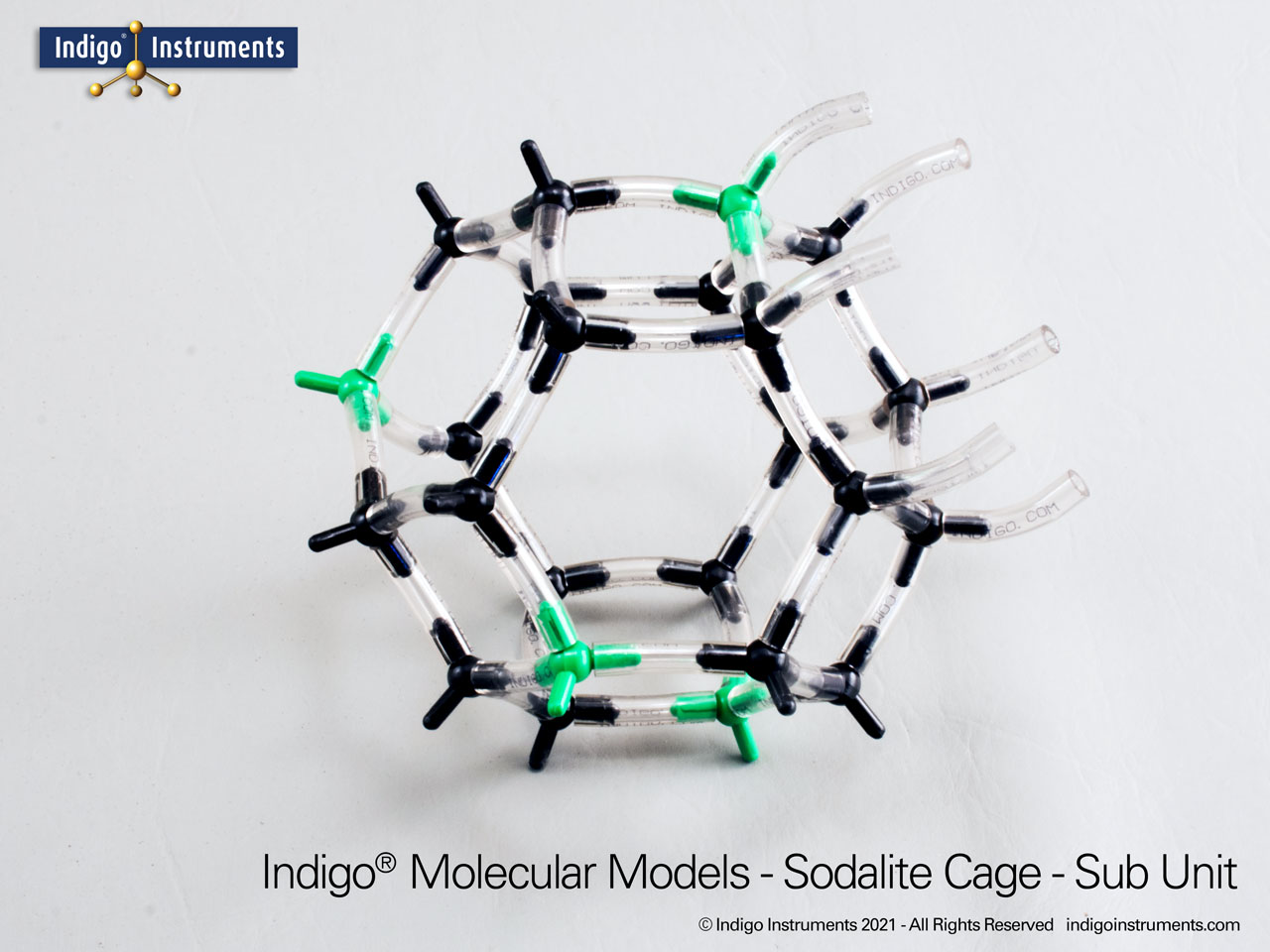
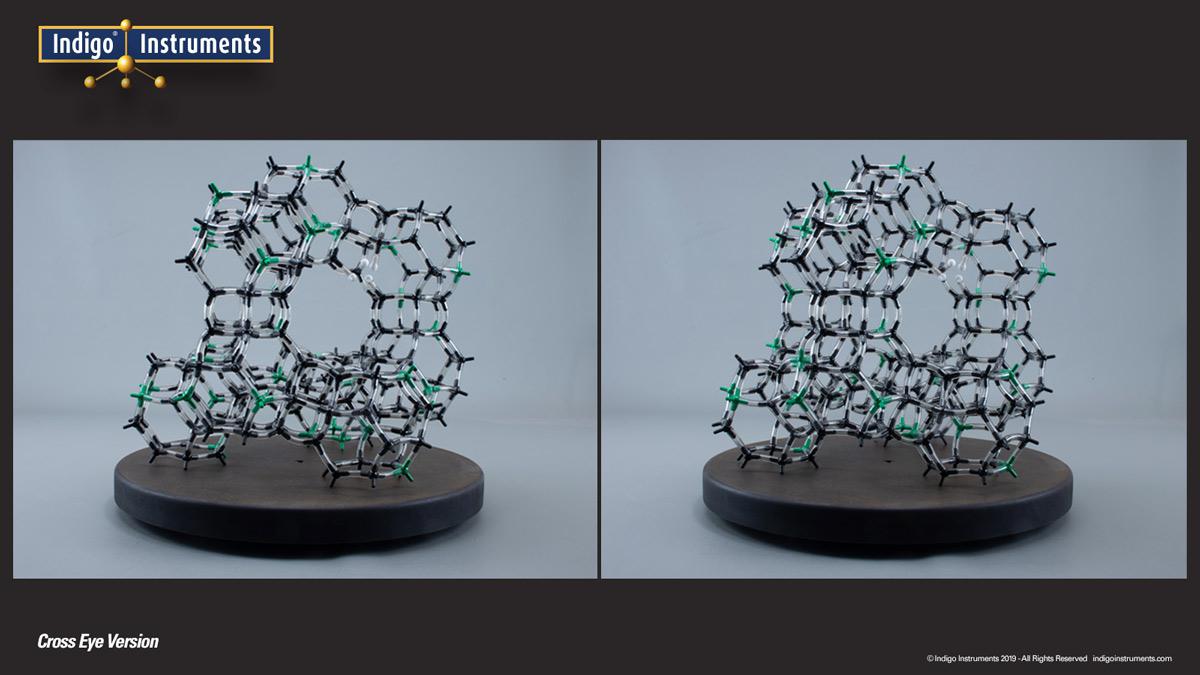
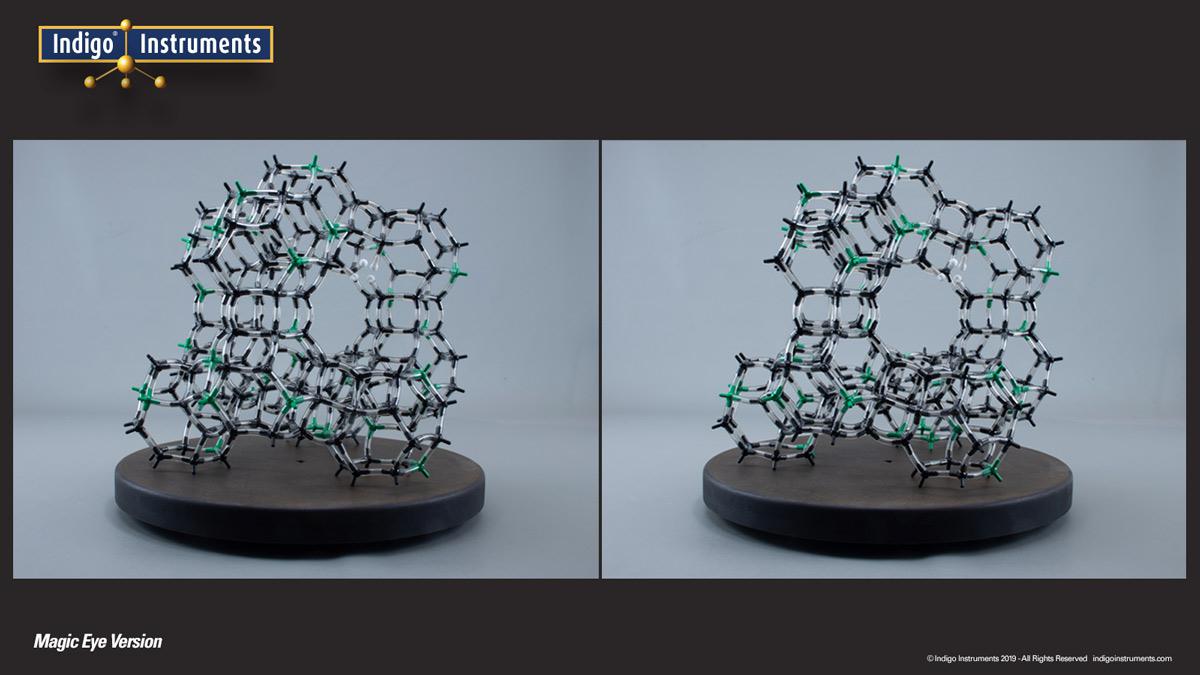
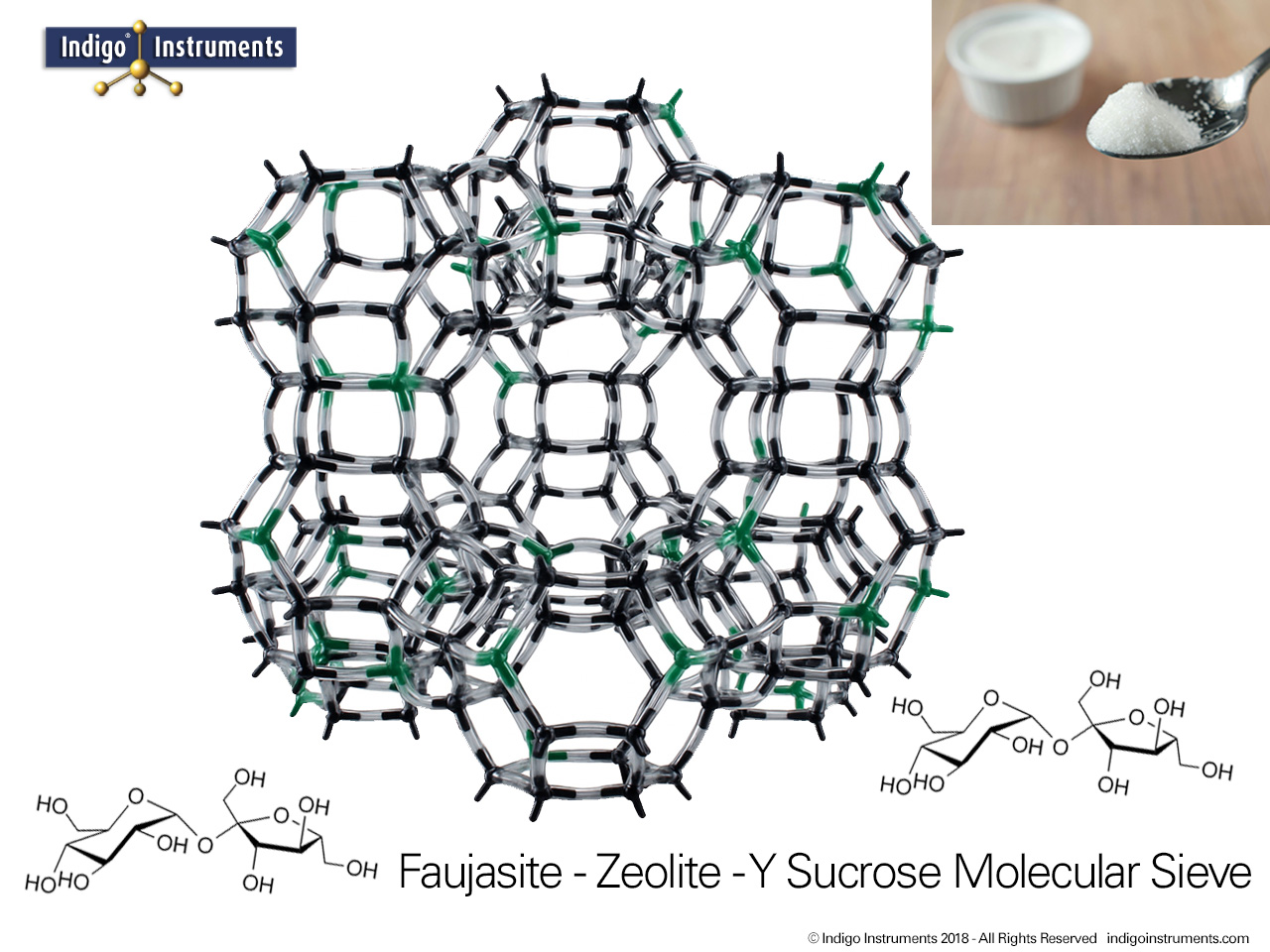
Thanks for the feedback. Trying to describe the assembly was next to impossible so we'll get a picture done of the sodalite cage & add that shortly. Here's a bit more on this model also used for teaching: Zeolite Catalyst Molecular Models Teach Oil Cracking